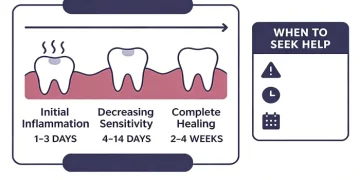Addressing Exam-Related Anxiety and Promoting Resilience Among Students
The Ministry of Education has introduced comprehensive measures aimed at alleviating the mental health challenges faced by students in primary and secondary schools. Recognizing the pervasive issue of exam-related anxiety and the undue stress stemming from academic competition, these measures prioritize reducing excessive workloads and restructuring examination systems to promote healthier learning environments.
To mitigate exam-related stress, schools are required to enforce strict controls on homework volume, ensuring that tasks are meaningful and avoid repetitive, punitive assignments. Encouraging “No Homework Days” once a week is a key initiative to provide students with mental relief. Furthermore, examination management will undergo reforms, including reduced testing frequency and reasonable difficulty levels. Ranking students based on exam results is strictly prohibited, aiming to create a more equitable academic atmosphere.
Additionally, efforts to regulate extracurricular academic training continue, targeting both visible and covert practices that exacerbate academic pressure. The reforms extend to admissions policies for high schools, with an emphasis on expanding access to quality institutions through equitable allocation mechanisms such as balanced lottery admissions. These initiatives aim to alleviate the anxiety of students and their families regarding educational progression.
Life education is being integrated into school curricula to bolster students’ ability to adapt emotionally and psychologically. Monthly activities focusing on life skills, adolescence education, and resilience-building are mandated to equip students with essential tools for managing stress and challenges. Such programs are expected to enhance psychological flexibility and emotional resilience while fostering a supportive environment conducive to overall well-being.
Ensuring Physical Activity Through Mandatory Daily Exercise Programs
Physical health is intricately tied to mental well-being, prompting the Ministry of Education to mandate at least two hours of daily physical activity for all students. This initiative aims to cultivate active lifestyles while addressing physical health concerns such as obesity and poor posture that often correlate with mental health issues.
Schools are tasked with organizing inclusive sports events at both class and grade levels, fostering camaraderie and teamwork among students. Additionally, educational institutions are encouraged to collaborate with community organizations to open nearby sports facilities for student use after school hours. The extension of recess periods into 15-minute intervals ensures that students have ample time for physical movement during their school day.
Pilot programs for “Healthy School” initiatives are underway, exploring comprehensive strategies to tackle prevalent issues such as myopia, obesity, and psychological distress among students. These programs employ innovative solutions tailored to the unique needs of each school community while promoting holistic approaches to student health.
Promoting Adequate Sleep Through Revised Schedules and Awareness Campaigns
Recognizing the detrimental impact of sleep deprivation on mental health, measures have been implemented to guarantee sufficient rest for students. Schools must revise start times to avoid early-morning instructional activities that compromise sleep schedules. Institutions equipped with appropriate facilities are encouraged to provide midday rest opportunities.
Awareness campaigns targeting both parents and students focus on disseminating knowledge about sleep hygiene and its importance for cognitive function and emotional stability. Parents are guided in establishing structured routines that align with scientific recommendations for age-appropriate sleep durations.
To ensure compliance, sleep management policies are enforced rigorously, prohibiting excessive study hours that encroach upon rest periods. Student sleep patterns are monitored as part of broader health assessments, integrating findings into evaluations of educational outcomes.
Building Healthy Digital Habits Among Students
The pervasive use of digital devices among youth necessitates proactive measures aimed at cultivating healthy online behaviors. Schools are tasked with educating students about digital literacy, emphasizing cybersecurity awareness and responsible usage practices.
Policies regulating the presence of smart devices within educational environments are being strengthened. Mobile phones and other electronic gadgets are banned from classrooms to minimize distractions during lessons. Collaborative initiatives involving families encourage joint participation in “screen-free activities,” fostering meaningful offline interactions.
To address harmful online content, regulatory agencies have been engaged in improving algorithmic transparency on digital platforms frequented by minors. Content promoting anxiety-inducing narratives or toxic competitive behaviors is strictly prohibited. Moreover, the development of safer online ecosystems includes the widespread adoption of “minor-friendly modes” across various media formats such as social media platforms, video streaming services, games, and e-books.
Supporting Vulnerable Student Populations Through Targeted Interventions
Special attention is given to vulnerable student groups such as children from single-parent households or those experiencing familial instability. Comprehensive profiling mechanisms ensure that individual needs are identified early on through personalized psychological support plans.
Schools are encouraged to strengthen ties between educators and parents or guardians by conducting regular home visits at least once per semester. These visits aim at understanding family dynamics while providing tailored interventions for children facing emotional challenges.
Programs such as “Caring Mothers” initiatives pair volunteers with children in need of emotional support while addressing logistical concerns faced by boarding schools regarding living conditions. Training programs enhance caregivers’ capacity for empathetic engagement with at-risk youth while fostering a nurturing environment within institutional settings.
Establishing Robust Monitoring Systems for Early Detection of Mental Health Issues
A nationwide system for monitoring student mental health has been proposed as part of efforts toward preemptive intervention strategies. Annual sampling surveys assess psychological conditions across different demographics alongside evaluations related directly to institutional programs aimed at promoting wellness.
Local governments are encouraged toward developing region-specific frameworks capable of identifying emerging trends indicative of potential distress among school-aged populations quickly enough before escalations occur further downstream within communities themselves where interventions become far harder than might otherwise have been earlier prevented altogether beforehand systematically beforehand holistically better-integrated outcomes ultimately.





























